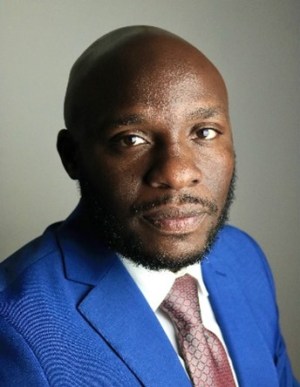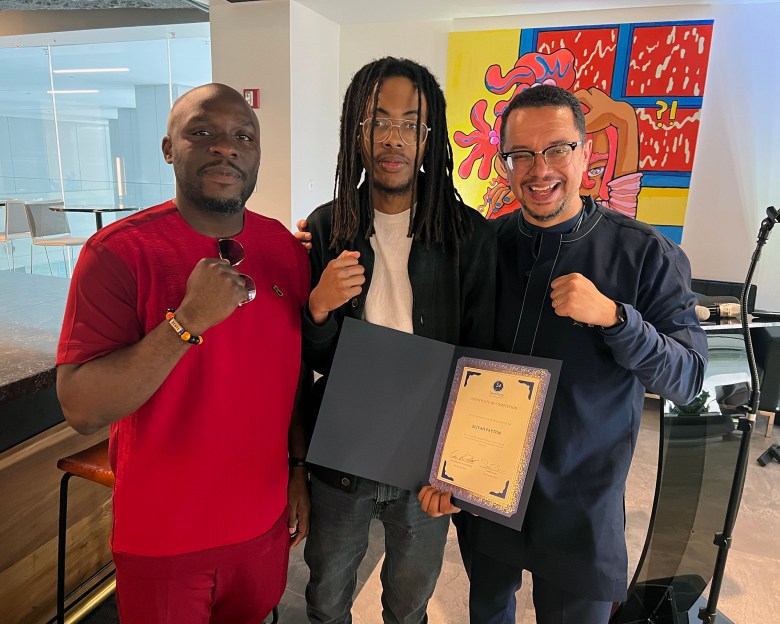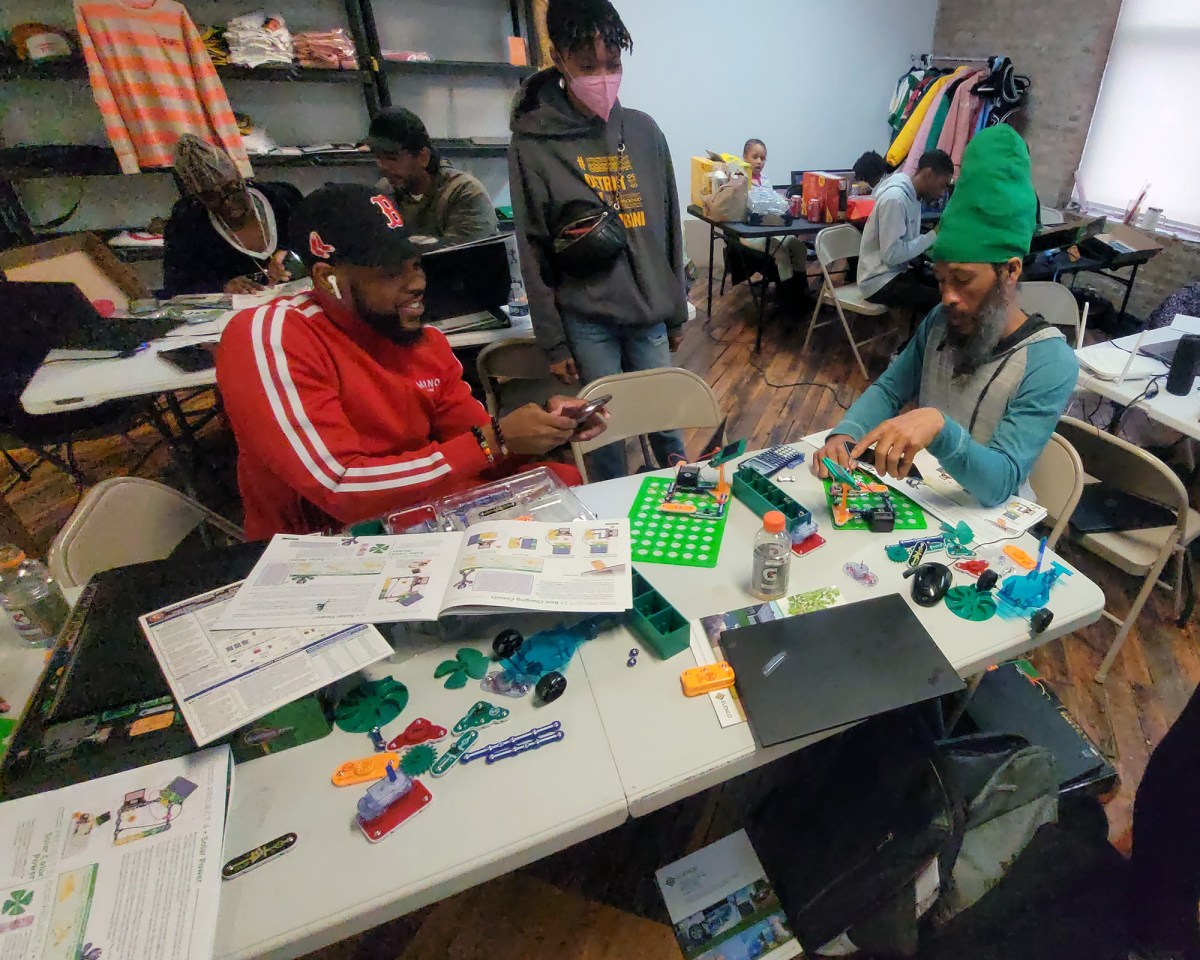A Chicago-area engineer and CEO with roots in Ghana, Senyo Ador has a unique perspective on promoting clean energy and sustainable development.
“You can come into a space like Chicago that has been built, caught on fire and rebuilt, and you juxtapose that against Ghana, [which] still is more like a blank slate that’s continuing to build its own infrastructure,” said Ador, who is the co-founder of Sẽsẽnergi Eco Solutions Enterprise in Berwyn, Illinois. “It’s almost like I’m cheating because I’ve seen a finished product and now I’m in a space where I have access to a work in progress.”
Sẽsẽnergi offers advisory and energy modeling services to developers to build, design, and finance net-zero or high-efficiency projects. Ador is also committed to providing career opportunities in the clean energy economy to members of BIPOC communities.
Ador and his company collaborate with Elevate, a clean energy nonprofit based in Chicago. Through its workforce development program, Elevate provides financial and logistical support for community-based service providers like Sẽsẽnergi to increase diversity among clean-energy operations — and thereby increase employment opportunities for members of traditionally disinvested communities.
Elevate’s program recruits business owners from marginalized communities in a number of specialties, including general contracting, heating and cooling, electrification, weatherization and plumbing. Companies and their owners receive capacity and growth planning, community-based clean energy skills training, business development, job and life skills training, networking opportunities, and stipends to cover lost income and certification fees. The program also provides access to sources of vital working capital.
Collaboration with Elevate has been vital for Ador and Sẽsẽnergi, providing additional support to help the company secure contracts that might otherwise have been out of reach.
“Being able to stabilize yourself with a relationship [with] Elevate means a lot,” Ador said. “I think pairing [the two] together gives a lot of folks that are looking at a two-and-a-half-year-old company, and wondering how it’s going to work, some peace of mind.”
Moving into clean energy

Ador is a third-generation engineer. His grandfather was trained as a civil engineer in Germany, and his father worked as a welder on the first hydroelectric dam in Ghana. He began his career with GE building gas plants, and later worked on a rural electrification project through his family-owned business, TMG Ghana.
“After 10 years, it really got me understanding process,” Ador said. “Like what is the cycle from saying, ‘Hey, I want to put a solar farm in this part of the world’ to your interconnection with a utility. From that I started to grow confidence and feel like this is something I could do. Not only on my own, but with people that have the same kind of worldview and background as myself.”
Even while working with projects using fossil fuels, Ador was inspired by the possibilities of clean energy. But it was while working on a rural electrification project in Ghana that Ador observed the transformational power of clean energy on the ground.
“I would build gas turbines, but I was aware of wind turbines and so I would tinker,” Ador said. “I had an opportunity to visit a farm in Pembroke 10 years ago — maybe even more than that — Black Oaks Center for Sustainable Living. And they were really deep in the solar conversation, energy storage, biofuel. And to see folks from Chicago — African Americans with corporate backgrounds that just decided, ‘We’re going to unplug from the world as we know it, and just burrow down this adventure of clean energy and sustainability’ — it was inspiring.
“But the international piece was on the rural electrification projects that I was working on [in Ghana]. The grid could only go so far because of the terrain. You have to carry poles and wires and transformers deep into these areas. The only way to really get meaningful access to electricity to people is solar.
“So, we started doing island communities there, and that’s what really got my wheels turning. I was like, okay, this is an island community that their livelihood is based around fishery. So, they need cold storage. Now [I was] moving out of the aid conversation into, ‘What’s your bottom line?’ And you guys are losing a bunch of fish because you can’t store it. This solution can actually impact your ability to store and sell fish that otherwise would’ve been considered a loss.”

Workforce training
Sẽsẽnergi, which has three full-time and four part-time employees, launched its workforce training program in 2021, recruiting cohorts of 10 to 14 trainees. The 16-week curriculum covers solar array installation, site assessment, system design and preparation for the North American Board of Certified Energy Practitioners exam.
Sẽsẽnergi also provides cross-training, such as water heater and heat pump installation. To date, three cohort members have found employment within the company while six have landed external positions with an inverter manufacturer and a solar installer company.
Providing clean energy workforce opportunities for members of environmental justice communities — where opportunities for formal employment are scarce — is an essential element of Sẽsẽnergi’s mission. Honoring this mission has meant that the bottom line has sometimes, at least temporarily, taken a back seat to grant grace to less-than-optimal employee performance. In one instance, a no-show employee put an important heater replacement job on the line. Nonetheless, the worker is still with the company, Ador said.
“Having somebody that’s 25 years old for 14 weeks, you get attached to them; you get attached to their potential,” Ador said. “You have a vision for what they can be in your company, but that’s 25 years of life that’s been lived. You have to afford people the opportunity to be human, with all that entails.
“So, on that particular project, it was a no call, no show, [on] the pipeline deal. Obviously being disappointed and doing your best to try to smooth that over, so that you can maintain your book of business, but then also not throwing human beings away because one opportunity just didn’t work out. It’s a painful process, but it’s something that we’re committed to. It’s part of who we are and we can’t turn away from it.”
With his experience working on bigger projects, Ador recognizes there are limits to what a small company can take on.
“Our team will get frustrated with having missed out on the opportunity and we’ll look in the mirror and say, ‘Hey, we know what it takes to ultimately be at that table,” Ador said. “It takes time; it takes tenacity and you can’t really quit.’”
On the other hand, as a Black entrepreneur, Ador still encounters obstacles that White-owned companies may not deal with, despite his extensive expertise and experience.
“I’m happy to see more and more of us [BIPOC] in those spaces,” Ador said. “But even with my experience, I can come on a job, and you will feel like you’re being shut out or frozen out or taken for granted in certain ways. So, it’s a constant fight, but I think that’s part of being an entrepreneur is not taking that fight sitting down.”
Looking toward the future
Collaboration with Elevate will continue to play a significant role in the future of the company as it continues to build capacity for hands-on projects, Ador said.
“I feel good about the company,” Ador said. “We’re a BIPOC company by makeup, but I think energy is an everybody issue and everybody needs those solutions. So, we want to cross-collaborate as much as possible. We obviously will always be in tune with the community’s needs. It’s not even a mandate. It’s part of our DNA that we’re going to be supporting Black and Brown communities and disenfranchised portions of not just Illinois, Chicago, the U.S., but globally.
“There’s always a continuing dialogue about how we can utilize sustainability as a tool to unlock value for the built environment, but also the human environment.”

